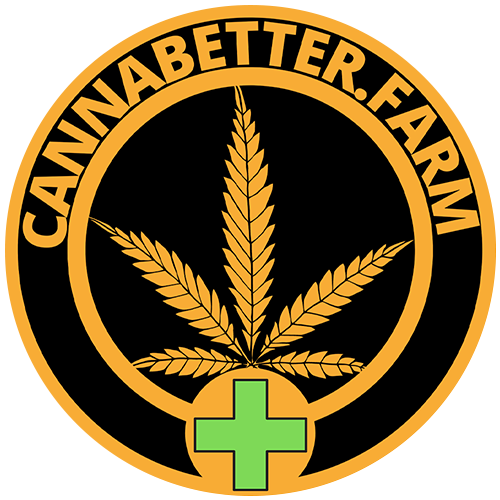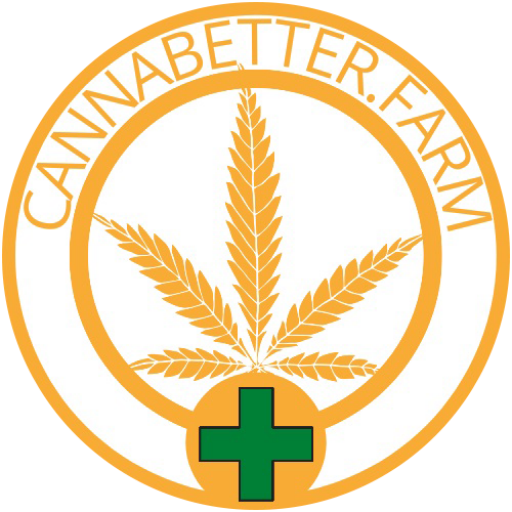Hemp for the People
A cornucopia of new and exciting products!
These are the laws that made the production and shipment of all Hemp and Hemp Derived products legal:
> The 2018 Farm Bill (pdf) directed USDA to establish a national regulatory framework for hemp production in the United States.
In December of 2018, the 2018 Farm Bill was signed into law. It removed hemp, defined as cannabis (Cannabis sativa L.) and derivatives of cannabis with extremely low concentrations of the psychoactive compound delta-9-tetrahydrocannabinol (THC) (no more than 0.3 percent THC on a dry weight basis), from the definition of marijuana in the Controlled Substances Act (CSA). This opened the door to a fantastic array of products that are just now making their way into the hands of consumers.
> The USDA published a final rule on January 19, 2021, that provides regulations for the production of hemp in the United States and became effective as of March 22, 2021
Our goal and mission: to bring every Farm Bill Compliant Hemp product available, in its pure and natural state, to consumers, at the highest possible concentrations at best-in-market prices. Every single product is composed 100% Hemp and Hemp derivatives, with the exception of our oils which are provided at 25% concentrate (for CBD, Concentrate, and Isolate products), and 12.5% Extract for our Delta-8 products with the remainder being Pure Coconut MCT Oil, which is the preferred carrier oil for Hemp Extracts and Cannabinoids.
Ok, so what are all of these Farm Bill Compliant products?
This is the law that tells us what they are:
Agriculture Improvement Act of 2018 (2018 Farm Bill, PL 115-334)
Subtitle G–Hemp Production
SEC. 297A. <> DEFINITIONS.
In this subtitle:
(1) Hemp.–The term `hemp’ means the plant Cannabis sativa L. and any part of that plant, including the seeds thereof and all derivatives, extracts, cannabinoids, isomers, acids, salts, and salts of isomers, whether growing or not, with a delta-9 tetrahydrocannabinol concentration of not more than 0.3 percent on a dry weight basis.
7 USC 1639o SEC. 10114. INTERSTATE COMMERCE.
(2) TRANSPORTATION OF HEMP AND HEMP PRODUCTS.—No State or Indian Tribe shall prohibit the transportation or shipment of hemp or hemp products produced in accordance with subtitle G of the Agricultural Marketing Act of 1946 (as added by section 10113) through the State or the territory of the Indian Tribe, as applicable.
What a lot of things! Derivatives! Extracts! Cannabinoids! Isomers, acids, salts, salts of isomers! What the heck IS all this stuff?
Derivatives:
That’s everything Derived from the Hemp plant, this includes EVERYTHING ELSE on the list, and was meant to be a blanket term; any substance or product that you produce from Hemp that was Farm Bill Compliant when harvested (less than .3% Delta-9 THC) where the finished product is ALSO Farm Bill Compliant, are compliant products. All the products below are ‘Derived from Hemp’ and are therefore Derivatives under the law.
Extracts:
There are nearly infinite varieties of extracts; each Hemp flower has its own profile, each process (and there are many) influences the results, every processor has their own secrets and recipes, and often the products of different farms are mixed together as ‘biomass’. Extracts range from Terpenes, which are light, clear, fragrant: Hemps Essential Oils, to Distillate available as solid golden crystals, snow-white and pink Isolate powders, and black tarry phytocannabinoid rich Crude products.
That’s right, there are countless extracts to choose from! The main Extract types are:
Crudes:
“Crude” refers to the base product produced during the initial extraction of hemp material. There are high CBG strains from which CBG Strain Hemp Crude may be obtained, but those are typically ‘hot’ and for the rest of this description we will focus on CBD Strain Hemp Crude.
CBD Strain Hemp Crude typically ranges from 40% to 70% CBD. ‘Winterized Crude’ has had the fats and waxes removed. ‘Crude’ products are typically very dark, almost black, with red and brown notes, rich, fragrant, and EXTREMELY BITTER, with the aspect of a thick molasses. Crude with further refinement becomes the golden and ruddy Distillates. Because they are a direct extract, they contain almost all of the components of Hemp. Terpenes, Phytocannabinoids (CBD, CBC, CBN, CBG, and others known and as yet unidentified; there are at least 144 different cannabinoids isolated from cannabis, exhibiting varied effects). As well as many other phytochemical compounds and minerals such as amino acids, iron, zinc, calcium, magnesium, potassium, carbohydrates, vitamins B1, B2, B6, D, omega 3 & 6 fatty acids, beta-carotene, chlorophyll, ketones, flavonoids, pigments, nitrogenous compounds, alkanes, and glycosides. Crude CBD oil is as close as you can possibly get to the real plant’s chemical makeup as it grows in the ground.
Typically every compound and component of hemp is in the crude, but ‘Winterized Crude’ has had the fats and waxes removed.
Crude CBD oil is also known as Rick Simpson oil after a Canadian Cannabis pioneer who made a ‘full spectrum crude’ from Marijuana; this is the Hemp version of that product.
There are two main types of crude: Hot Crude (more than .3% Delta-9 THC and illegal), and Compliant Crude (less than .3% Delta-9 THC and legal)
We offer Compliant Hemp Crude from SC Botanicals, made from South Carolina grown Hemp, processed in South Carolina. We offer this Crude as both Pure Crude and Oil. This product is VERY BITTER and VERY RICH in everything Hemp has to offer; see our COA for a complete cannabinoid profile.
This product is for someone who wants a complete hemp product, with just the plant matter removed; this is a very specific product intended for an educated consumer. If you want a ‘Rick Simpson Oil’ type of preparation this is the product for you.
Distillates:
Hot CBD Distillate (refined from Hot Crude)
Compliant Distillate (may be refined from either Hot or Compliant Crude)
Our Broad Spectrum Distillate is the richest, most sensuous product we could find. It is the basis for our Broad Spectrum Distillate Oil and is available as Pure Concentrate and in various Concentrate combinations.
T-Free Distillate not just Compliant, but has Undetectable amounts of Delta-9 THC.
Our T-Free Distillate product is available as T-Free Distillate Oil and is available as Pure Concentrate and in various Concentrate combinations.
Cannabinoids:
There are at least 144 different cannabinoids isolated from cannabis, exhibiting varied effects. These are usually offered as Isolate products in a very pure (95% and up) form. Isolates can be combined for specific effect, and along with Terpenes can product the Entourage Effect; each of the individual parts like an instrument in a Symphony of Hemp. THC, CBD, CBG, CBC, and CBN are the ones most well known. Most are not yet available but many are, with more expected to be available soon. Here are some of the highlights:
Delta-9-tetrahydrocannabinol (THC) is the primary psychoactive component of the Cannabis plant. Delta-9-tetrahydrocannabinol (Δ9-THC) is illegal under the Farm bill.
We offer Delta-8 THC as an alternative to Delta-9, since it is currently legal and available. We hope to offer Delta-9 THC products in the future, but for now, Delta-8 THC is the closest thing available. See more below under Isomers: Delta-8 THC.
THCA (tetrahydrocannabinolic acid) THCA is found in variable quantities in fresh, undried cannabis, but is progressively decarboxylated to Delta-9 THC with drying or cooking.
CBD (cannabidiol) Cannabidiol (CBD) is non-psychotropic.
We offer CBD as Pure Isolate and Broad Isolate, in Oil and Isolate forms, as well as in various Concentrate combinations.
CBDA (cannabidiolic acid) CBDA is the chemical precursor to cannabidiol (CBD), which is produced from CBDA through the process of decarboxylation
CBN (cannabinol) Cannabinol (CBN) is the primary product of THC degradation. CBN content increases as THC degrades in storage, and with exposure to light and air. It is only mildly psychoactive.
We offer CBN as Oil and as Pure Concentrate and in various Concentrate combinations.
CBG (cannabigerol) Cannabigerol (CBG) is non-psychoactive but still contributes to the overall effects of Cannabis.
We offer CBG as Oil and as Pure Concentrate and in various Concentrate combinations.
CBC (cannabichromene) bears structural similarity to the other natural cannabinoids, including tetrahydrocannabinol (THC), tetrahydrocannabivarin (THCV), cannabidiol (CBD), and cannabinol (CBN), among others.
CBC is rare and difficult source at high quality. We have located a quality source at a VERY high price and are working on bringing this product to you at a lower price point.
CBL (cannabicyclol) Cannabicyclol (CBL) is a non-psychoactive cannabinoid found in Cannabis.
CBV (cannabivarin) Cannabivarin (CBV), also known as cannabivarol, is considered a non-psychoactive cannabinoid — it does not produce the euphoric side effects found in THC.
THCC (tetrahydrocannabiorcol) Δ9-Tetrahydrocannabiorcol (Δ9-THCC, (C1)-Δ9-THC) is a phytocannabinoid found in Cannabis.
THCV (tetrahydrocannabivarin) Tetrahydrocannabivarin (THCV) is prevalent in certain central Asian and southern African strains of Cannabis. It reportedly lessens the psychoactive effects of THC.
THCV is VERY EXPENSIVE, rare, and difficult to obtain reliably at high quality. We are still working on sourcing and providing a quality product
THCP (tetrahydrocannabiphorol) its cannabinoid effects are “far higher than Δ9-THC itself.”
CBDV (cannabidivarin) Cannabidivarin (CBDV) is a non-psychoactive cannabinoid found in Cannabis.
CBCV (cannabichromevarin) cannabidivarin (CBDV) is usually a minor constituent of the cannabinoid profile
Isomers:
Delta-8-Tetrahydrocannabinol (Δ8-THC), which IS legal under the farm bill
Delta-10
We have sourced Delta-10 THC and are working on bringing that product to you, products are currently in development.
Acids, salts, and salts of isomers:
Thankfully, these are included in ‘Cannabinoids’ and ‘isomers’ above. For instance, CBDA (cannabidiolic acid) CBDA is the chemical precursor to cannabidiol (CBD), and similarly THCA (tetrahydrocannabinolic acid) breaks down into THC. There are many Cannabinoid Acids but we can treat them as the same for most purposes.






